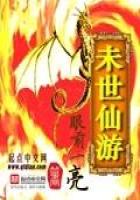The American people, when they wrote their first state constitutions, were filled with a profound distrust of executive authority, the offspring of their experience with the arbitrary King George.So they saw to it that the executive authority in their own government was reduced to its lowest terms, and that the legislative authority, which was presumed to represent the people, was exalted to legal omnipotence.In the original States, the legislature appointed many of the judicial and administrative officers; it was above the executive veto; it had political supremacy; it determined the form of local governments and divided the State into election precincts; it appointed the delegates to the Continental Congress, towards which it displayed the attitude of a sovereign.It was altogether the most important arm of the state government; in fact it virtually was the state government.The Federal Constitution created a government of specified powers, reserving to the States all authority not expressly given to the central government.Congress can legislate only on subjects permitted by the Constitution; on the other hand, a state legislature can legislate on any subject not expressly forbidden.The state legislature possesses authority over a far wider range of subjects than Congress--subjects, moreover, which press much nearer to the daily activities of the citizens, such as the wide realm of private law, personal relations, local government, and property.
In the earlier days, men of first-class ability, such as Alexander Hamilton, Samuel Adams, and James Madison, did not disdain membership in the state legislatures.But the development of party spirit and machine politics brought with it a great change.Then came the legislative caucus; and party politics soon reigned in every capital.As the legislature was ruled by the majority, the dominant party elected presiding officers, designated committees, appointed subordinates, and controlled lawmaking.The party was therefore in a position to pay its political debts and bestow upon its supporters valuable favors.
Further, as the legislature apportioned the various electoral districts, the dominant party could, by means of the gerrymander, entrench itself even in unfriendly localities.And, to crown its political power, it elected United States Senators.But, as the power of the party increased, unfortunately the personnel of the legislature deteriorated.Able men, as a rule, shunned a service that not only took them from their private affairs for a number of months, but also involved them in partizan rivalries and trickeries.Gradually the people came to lose confidence in the legislative body and to put their trust more in the Executive or else reserved governmental powers to themselves.It was about 1835 that the decline of the legislature's powers set in, when new state constitutions began to clip its prerogatives, one after another.
The bulky constitutions now adopted by most of the States are eloquent testimony to the complete collapse of the legislature as an administrative body and to the people's general distrust of their chosen representatives.The initiative, referendum, recall, and the withholding of important subjects from the legislature's power, are among the devices intended to free the people from the machinations of their wilful representatives.
Now, most of the evils which these heroic measures have sought to remedy can be traced directly to the partizan ownership of the state legislature.The boss controlling the members of the legislature could not only dole out his favors to the privilege seekers; he could assuage the greed of the municipal ring; and could, to a lesser degree, command federal patronage by an entente cordiale with congressmen and senators; and through his power in presidential conventions and elections he had a direct connection with the presidential office itself.
It was in the days before the legislature was prohibited from granting, by special act, franchises and charters, when banks, turnpike companies, railroads, and all sorts of corporations came asking for charters, that the figure of the lobbyist first appeared.He acted as a middleman between the seeker and the giver.The preeminent figure of this type in state and legislative politics for several decades preceding the Civil War was Thurlow Weed of New York.As an influencer of legislatures, he stands easily first in ability and achievement.His great personal attractions won him willing followers whom he knew how to use.He was party manager, as well as lobbyist and boss in a real sense long before that term was coined.His capacity for politics amounted to genius.He never sought office; and his memory has been left singularly free from taint.He became the editor of the Albany Journal and made it the leading Whig "up-state" paper.His friend Seward, whom he had lifted into the Governor's chair, passed on to the United States Senate; and when Horace Greeley with the New York Tribune joined their forces, this potent triumvirate ruled the Empire State.Greeley was its spokesman, Seward its leader, but Weed was its designer.From his room No.11 in the old Astor House, he beckoned to forces that made or unmade presidents, governors, ambassadors, congressmen, judges, and legislators.
With the tremendous increase of business after the Civil War, New York City became the central office of the nation's business, and many of the interests centered there found it wise to have permanent representatives at Albany to scrutinize every bill that even remotely touched their welfare, to promote legislation that was frankly in their favor, and to prevent "strikes"--the bills designed for blackmail.After a time, however, the number of "strikes" decreased, as well as the number of lobbyists attending the session.The corporate interests had learned efficiency.















